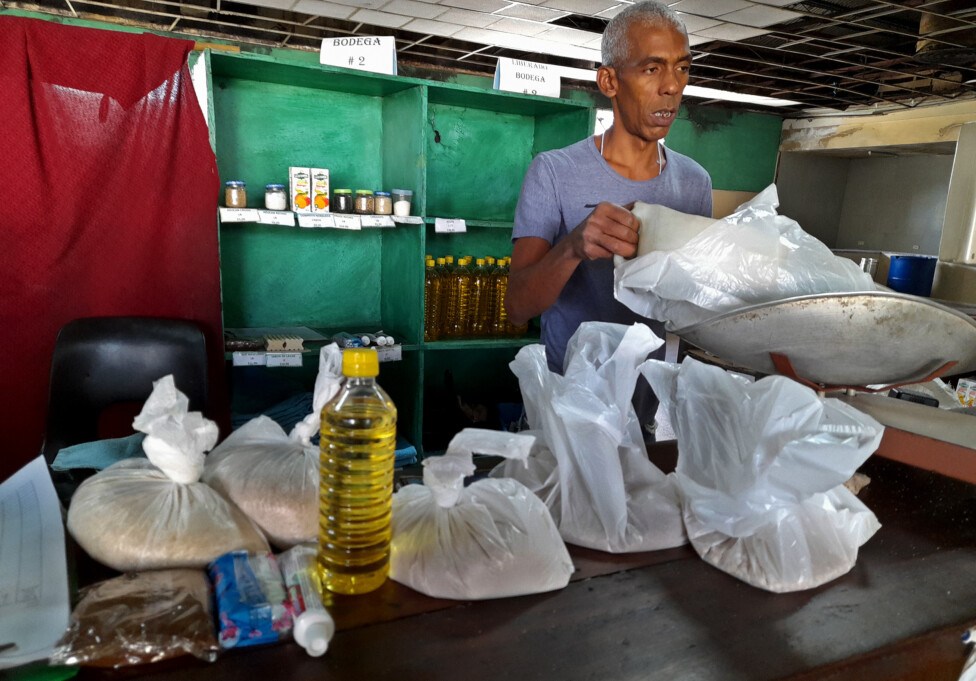
HAVANA TIMES – Irregularities in the rationed distribution of foods in Cuba increase the vulnerability of individuals and families who face greater obstacles in accessing basic products amid a deep economic crisis, inflation, and agricultural production deficits.
“We’re halfway through the month and there’s no rice, beans, or coffee. They only sold two pounds of sugar,” showed retired Maricela Ballester as she exited a state-run store in the municipality of Centro Habana, one of the 15 that make up the Cuban capital.
“For months, they’ve been bringing things in little by little, and people need to eat every day. Even during the Special Period crisis -the period following the collapse of the socialist bloc in Eastern Europe and the Soviet Union, the island’s main trade partners-, the products were in the ration stores at the beginning of the month. It’s not like that anymore,” Ballester told IPS.
Since March 1962, Cuba has maintained a system of rationed food distribution through a booklet that provides each citizen with some subsidized rice, sugar, grains, eggs, coffee, oil, bread rolls, meat products, and hygiene products on a monthly basis.
Through the booklet, these products are sold in a standardized manner, and at subsidized prices for a population of 11 million inhabitants.
Although the quantities and variety have decreased greatly since its inception, it is considered a support for food needs, especially for those with low incomes and who do not receive remittances from abroad.
There are also special diets for vulnerable groups such as infants, pregnant women, and patients with various pathologies.
The rest of the food, including fruits, vegetables, and tubers, as well as hygiene products, must be obtained in state stores in foreign currency, poorly stocked agricultural markets, also from private businesses, cooperatives, self-employed workers, and in the illicit market, at very high prices.
Access to these markets is very difficult for people with low incomes in an inflationary environment.
In this country of 11 million people, 2023 ended with inflation of around 30%, according to official data.
“My pension of 1,750 pesos is enough to buy the rations, my medicines, and pay the bills at home. However, a kilogram of powdered milk costs 2,000 pesos and a carton (of 30 units) of eggs about 2,700 pesos. Even with the money my two sons give me, it’s not enough,” emphasized retiree María Virgen Blanco, who resides in the municipality of Arroyo Naranjo.
The average monthly salary in Cuba is equivalent to about $35 dollars, the minimum wage to 17.5 dollars, and the minimum pensions to 12.7 dollars, based on the official rate (120 pesos per dollar).
But the current exchange rate in the informal market (300 pesos per dollar), which dictates the prices of many foods, goods, and services to meet consumer needs, reduces the average salary to $13.80 dollars, the minimum wage to seven dollars, and the lowest pensions to $5.10 dollars.
For ex


